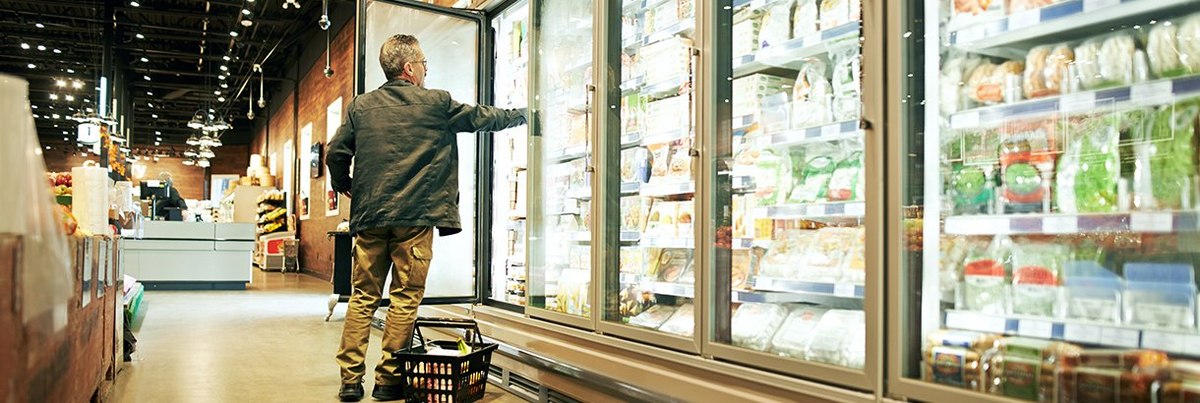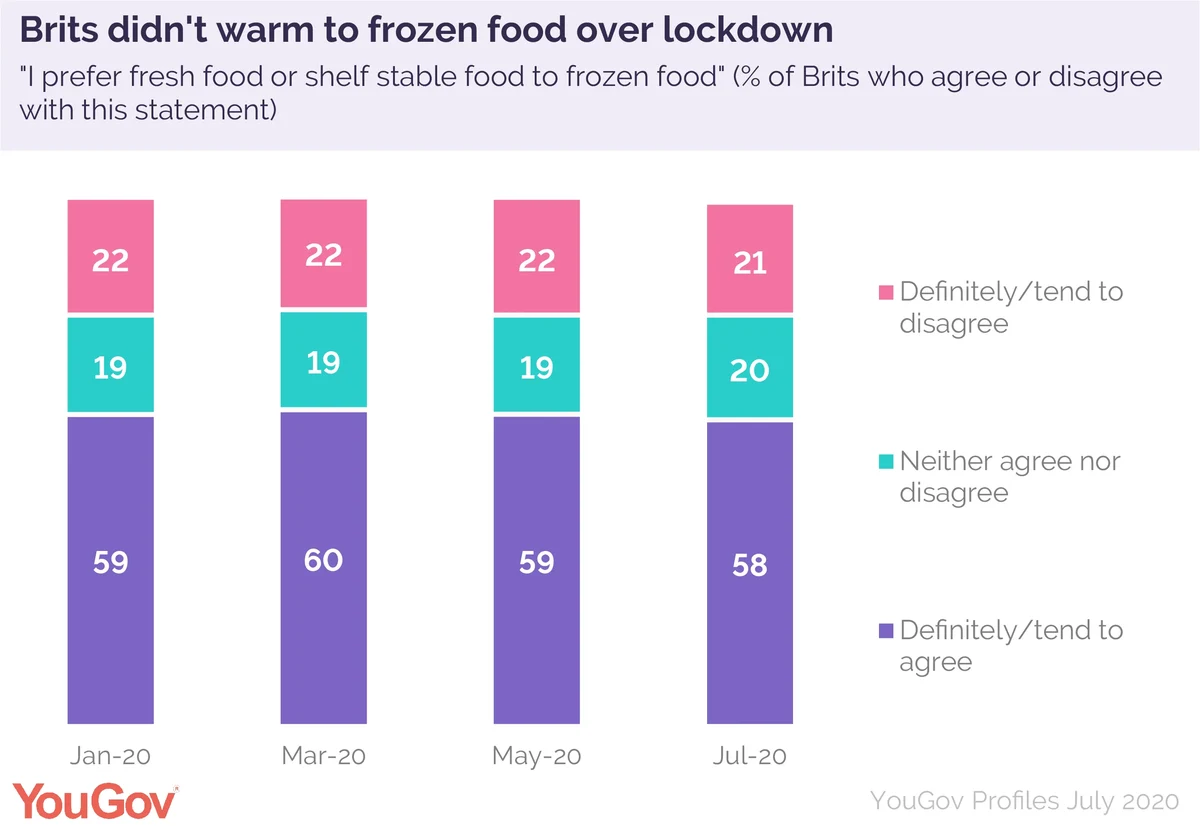
COVID-19 in the cupboard: has the pandemic changed British shopping habits?
Customers were more likely to stock up on dried and chilled foods during the earlier stages of lockdown – but overall food consumption patterns haven’t changed
The initial phase of the COVID-19 lockdown saw Brits buying dried pasta, tinned tomatoes, and other cupboard staples in bulk – causing usually commonplace items to sell out in supermarkets across the country. Pictures of bare shelves and stories of 9,000-customer-long queues for online shopping proliferated widely.
But has this led to any serious change in shopping habits? Are people more likely to favour frozen food over fresh – or buy up cupboard staples on a regular basis? Not especially.
Data from YouGov BrandIndex shows that there was a year-on-year increase in the proportion of the public who bought from a range of UK dried ambient goods companies (encompassing Marmite, Loyd Grossman, and Nescafe, among others). It also demonstrates similar year-on-year results for those buying chilled or frozen foods.
But post-June 2020 – when the panic buying phase ended and supply chains had adjusted to the new normal – current customer scores started tapering off again.

It’s possible this uptick was never truly sustainable. Most Brits (58%-60%) firmly prefer fresh food over frozen food, and the only changes we’ve noticed in this attitude have been incremental and well within the margin of error.
Supermarkets have now had time to adapt to the crisis, and more delivery slots have opened up – so those Brits who overstocked their cupboards and freezers during the earlier phase of the COVID-19 lockdown may well be experiencing buyer’s remorse.